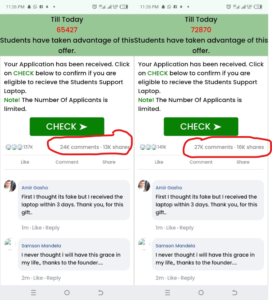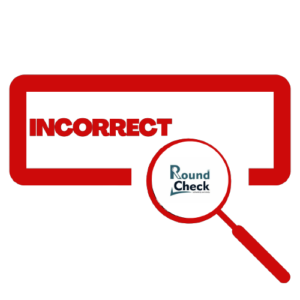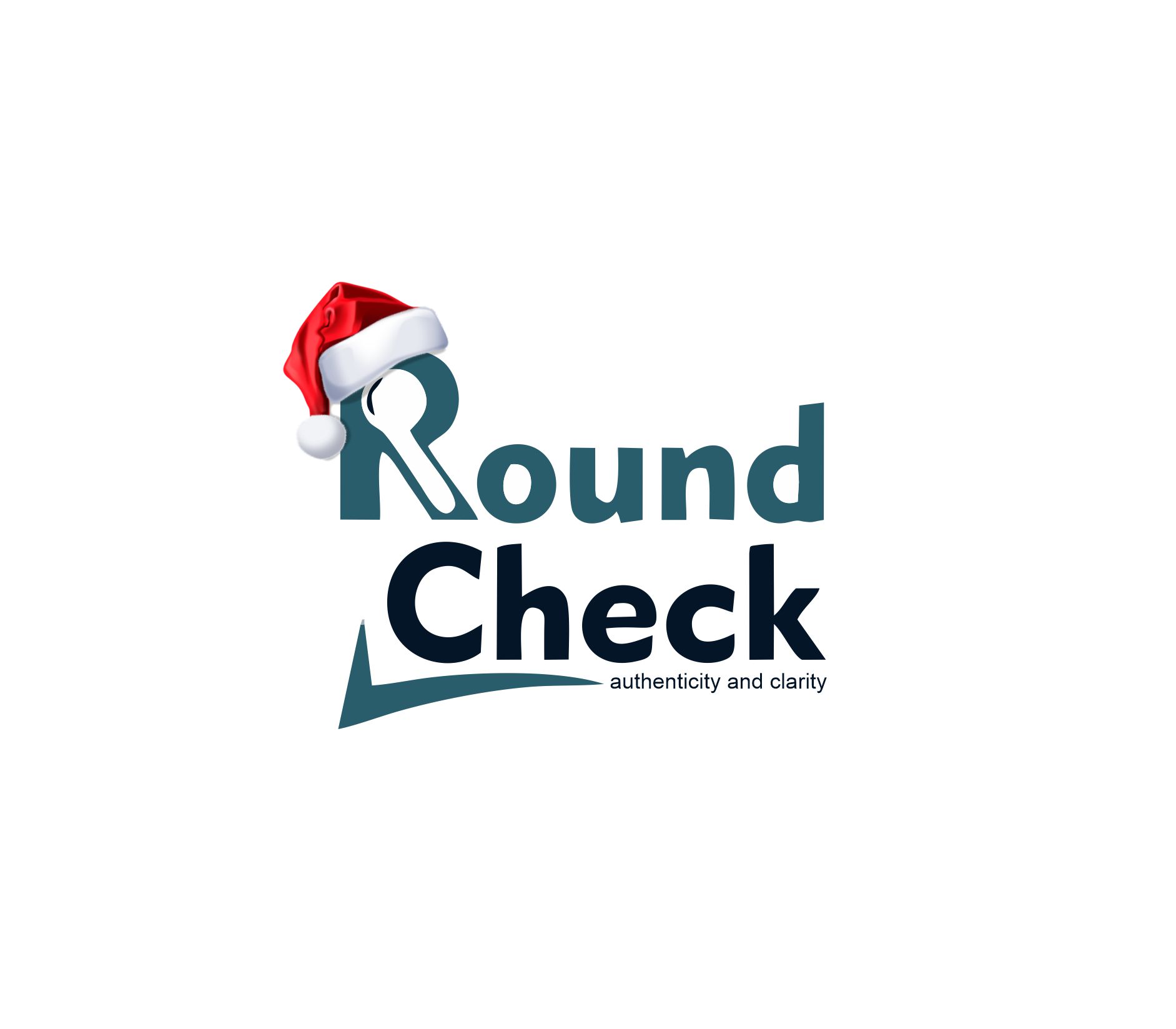|
Getting your Trinity Audio player ready...
|
By Eniola Amadu
Claim
A circulating post on Whatsapp has claimed that there is a laptop giveaway application for students. The post also noted that “960,000 students will be given free laptop” to enhance their learning.
Due to the nature of the claim and its potential to steal personal information of Nigerian students, RONDCHECK took a deeper look.
ROUNDCHECK Findings
ROUNDCHECK visited the website and followed the step-by-step processes to verify the authenticity of the claim.
The first noticeable danger sign was the continuous increase in the number of shares, likes, and comments.
Within a minute, the number of likes, comments and shares rose to over two thousand and kept on increasing.

Another red flag noticed was the instruction to share with 5 groups before one would receive the selected package.
To further verify if the website is authentic, we subjected it to Scamadviser, a verification tool used to verify the credibility of websites. We noticed that the application link is linked to a server that has hosted several unreliable websites.
Also, Scam Adviser graded the website 40%, meaning that the website has common features associated with scams, indicating the need to be cautious of it.
Furthermore, ROUNDCHECK discovered that the government or its agencies have not rolled out this scheme; there is no official organisation, ministry or individual attached as the sponsor or facilitator of this scheme.
Verdict

The circulating post claiming that there is an ongoing application for the students Laptop Scheme is FAKE.
It is a hoax created to deceive unsuspecting members of the public and illegally obtain their sensitive details.
How To Detect Hoax
To detect a hoax, individuals should watch out for messages that offer something unusually free, often presented as part of a scheme celebrating a person or event. These messages typically encourage recipients to take further steps to claim the supposed benefits.
However, when an individual comes across such messages, they should:
- Approach the information with scepticism.
- Research the person, event, or organisation mentioned to confirm whether the message is genuinely from them.
- Use website verification tools such as ScamAdviser to check the authenticity of the message or link.
This report was done under the Roundcheck Volunteer Network 4th Cohort









